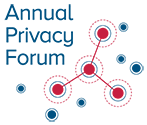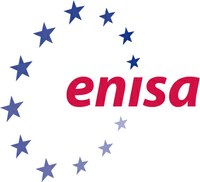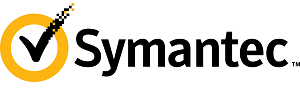Call for Papers
As of May 25th 2018, the General Data Protection Regulation (GDPR) started to apply after a long-lasting legislative process. With this regulation, the EU has legislated for a robust solution, which addresses individual rights and relevant obligations of service providers, and is directly applicable to all EU Member States. Additionally, the forthcoming Regulation on Privacy and Electronic Communications is expected to give new impetus to the way privacy is protected in electronic communications.
Despite the undisputable importance of the aforementioned legal developments, the practical implementation of privacy and data protection requirements is not always easy. This is largely due to the lack of proper integration of these requirements in the ‘heart’ of systems operation ‘by design’ and ‘by default’. At the same time, in an era of new technological challenges, such as Internet of Things and Artificial Intelligence, personal data may be processed by an unknown chain of entities, often leading to loss of control on the individuals’ side, detailed profiling or other unexpected processing of data. Therefore, examining what is at stake and where threats thereto originate from becomes of paramount importance.
In the light of the above, ENISA, DG CONNECT, the University of Rome Tor Vergata and LUISS University are organizing the Annual Privacy Forum (APF) 2019.
In APF 2019, we invite papers presenting original work on the themes of data protection and privacy and their repercussions on technology, business, government, law, society, policy and law enforcement. An inter-disciplinary approach is high in demand to contribute to bridging the gap between research, business models and policy, much like proposing new models and interpretations.
Submission can be made through Easychair at https://easychair.org/conferences/?conf=apf2019.
Research – Opinion Papers
APF 2019 seeks contributions from policy makers and implementers, Data Protection Authorities, industry, consultants, researchers, NGOs and as well as civil society. Opinion and interpretation papers are expected to reflect the views of the author(s). Submissions can be up to 8000 words long, excluding bibliography and appendices. Both research and opinion papers should deal with at least one of the following aspects:
- Implementation Aspects:
- Privacy "by design" and "by default" paradigms
- Adoption of PETs in contemporary digital services
- State-of-the-art and development of PETs
- Technical solutions for data portability and procedural issues
- Technical solutions for preventing online and mobile tracking
- Technical solutions for the enforcement and the implications of the subject’s right, e.g. right to erasure, access and correction
- Information and consent in online environments: practical solutions and implementations
- Modelling of data protection and privacy requirements, such as:
- Machine readable representations and automatic evaluation of policies
- Enabling transparency: technological and organizational challenges
- Aspects of privacy in artificial intelligence, autonomous agents, Internet of Things
- Practical implementation of GDPR and ePrivacy requirements
- Sustainable business models and trustworthiness assessment for privacy friendly online services
- Aspects of privacy impact and risk assessment
- Security measures for the protection of personal data
- Data protection certification
- Economics of privacy and personal data
- Issues of third countries interest
Student Papers
In order to encourage the participation of young researchers, the submission of papers by students is encouraged. These papers will be treated as thoroughly as full papers, but can be shorter (up to 4000 words) and reflect novel thinking that might not have been fully elaborated just yet.
Short Papers
In addition to student papers, short papers are invited as this call is open to anyone who has a sketch of an idea, opinion or a call for collaboration. Short papers should be up to 4000 words and should not overlap with work published elsewhere.
Review and Publication
Submissions of original work are invited; papers must not overlap substantially with work already published or simultaneously submitted to a journal or a proceedings bearing venue. Submissions must be drafted in English and need to comply with the Springer LNCS style guide, which can be found here and here.
All submissions will be thoroughly reviewed by our PC members. We aim at minimal 3, average 4, reviews per paper. Authors must submit their papers according to conditions and within the deadline indicated below.
Proceedings will be published by Springer LNCS.
Submission can be made through Easychair at https://easychair.org/conferences/?conf=apf2019.
Important Dates
|
Submission of full papers: |
11 January 2019 4 February 2019 23:59 GMT |
|
Notification to author(s): |
15 February 2019 1 March 2019 |
|
Camera-ready copies: |
8 March 2019 18 March 2019 |
|
APF 2019 taking place on: |
13 - 14 June 2019 |






